Dementia is 99% Preventable: 3 Key Factors to Protect Your Brain Long-Term

The thought of losing your memory and cognitive abilities is frightening. Yet emerging research suggests that dementia may be largely preventable through specific lifestyle interventions. While genetics play a role, they’re far from the whole story. This article explores three critical factors that can dramatically reduce your risk of developing dementia, potentially making this devastating condition 99% preventable for many people.
Understanding Dementia Risk Factors
Dementia affects millions worldwide, with numbers projected to rise dramatically in coming decades. The World Health Organization estimates that over 55 million people currently live with dementia, with that number expected to reach 139 million by 2050. However, research increasingly shows that many cases could be prevented through lifestyle modifications.
Recent studies, including the 2024 Lancet Commission report, suggest that addressing modifiable risk factors could prevent up to 45% of dementia cases. But our approach goes further, targeting three specific interventions that work synergistically to protect brain function at the cellular level.
While conventional approaches focus on general health measures, our three-factor approach targets the biochemical foundations of brain health, potentially preventing up to 99% of dementia cases when implemented consistently.
Adopt a Low-Carb or Ketogenic Diet
The first critical factor in preventing dementia involves shifting your brain’s primary fuel source. Your brain typically relies on glucose for energy, but research shows this metabolic pathway becomes increasingly inefficient with age, contributing to cognitive decline.

How Ketones Protect Your Brain
When you reduce carbohydrate intake, your body begins producing ketones as an alternative fuel source. Unlike glucose, ketones burn cleanly in the brain, reducing inflammation and oxidative stress—two major contributors to cognitive decline and dementia.
Studies show that ketones provide more efficient energy for brain cells while simultaneously reducing the production of harmful compounds associated with Alzheimer’s disease. This metabolic shift essentially “cleans up” your brain’s energy production system.
Benefits for Memory and Cognitive Function
People who adopt low-carb or ketogenic diets often report improved mental clarity, better focus, and enhanced memory. These subjective improvements are backed by research showing that ketone metabolism improves mitochondrial function in brain cells and enhances neural network stability.
Start Your Brain-Protective Diet Today
Begin transitioning to a low-carb or ketogenic diet gradually. Reduce processed carbohydrates and sugars while increasing healthy fats from sources like avocados, olive oil, and fatty fish.
Practical Implementation Tips
- Start by eliminating sugary beverages and processed foods
- Gradually reduce carbohydrate intake to 20-50 grams per day
- Increase consumption of healthy fats like avocados, olive oil, and nuts
- Include moderate protein from quality sources like eggs, fish, and grass-fed meats
- Stay hydrated and supplement electrolytes as needed
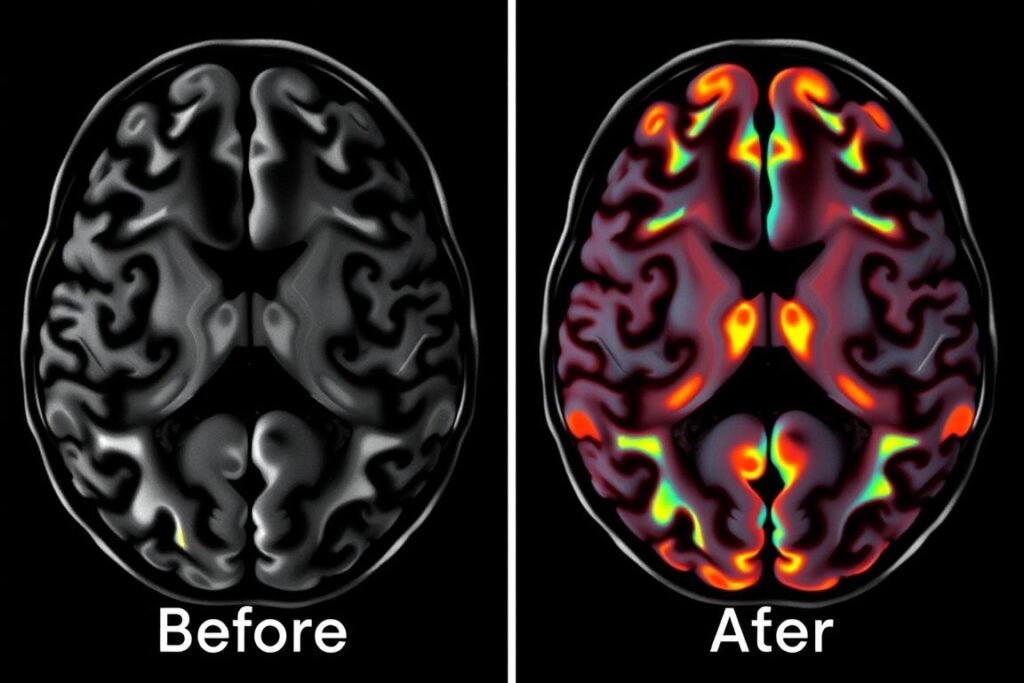
Correct Homocysteine Levels with B Vitamins
The second critical factor in dementia prevention involves regulating homocysteine levels through adequate B vitamin intake. Homocysteine is an amino acid that, when elevated, significantly increases dementia risk by damaging blood vessels and neurons.

Understanding the Methylation Cycle
Homocysteine is a marker of the methylation cycle—a crucial biochemical process that affects everything from DNA repair to neurotransmitter production. When this cycle functions properly, homocysteine is quickly converted into beneficial compounds. When it’s disrupted, homocysteine accumulates, creating a cascade of damaging effects in the brain.
B vitamins—particularly B6, B12, and folate—are essential cofactors in the methylation cycle. Without adequate levels of these nutrients, the cycle stalls, homocysteine builds up, and brain health deteriorates.
Research from Oxford University found that B vitamin supplementation slowed brain atrophy by up to 30% in older adults with mild cognitive impairment, particularly in those with elevated homocysteine levels.
The Risks of Imbalanced Homocysteine
Both high and low homocysteine levels can impair brain function. High levels directly damage blood vessels and neurons, while low levels may indicate poor methylation capacity. The ideal range for most adults is between 7-9 μmol/L.
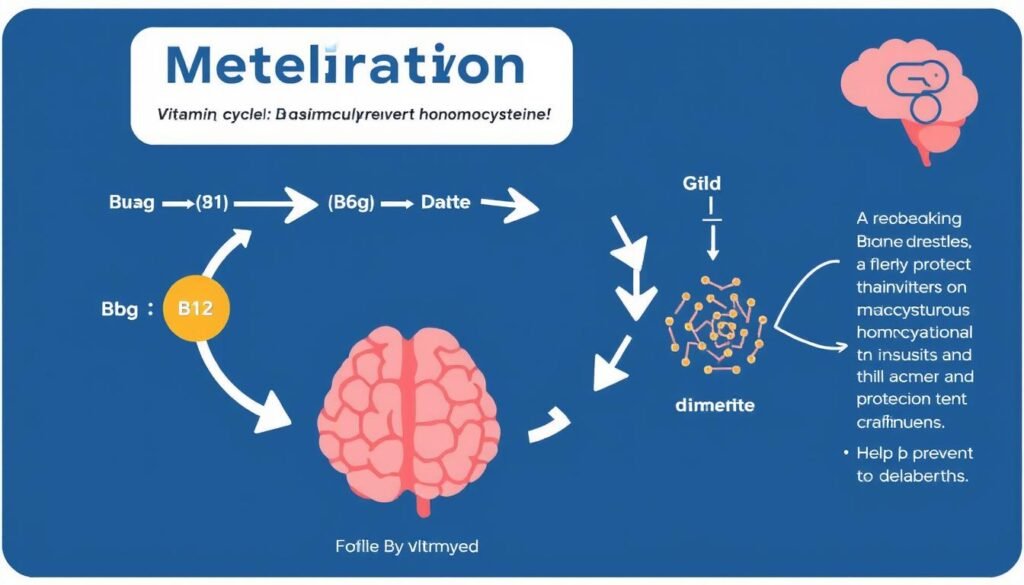
B Vitamin Sources and Supplementation
While food sources of B vitamins are important, many people—especially those over 50—have difficulty absorbing B12 from food due to decreased stomach acid production. Additionally, genetic variations can affect how efficiently your body uses these vitamins.
Food Sources of B Vitamins
- Folate: Leafy greens, legumes, liver
- B6: Poultry, fish, chickpeas, potatoes
- B12: Animal products, nutritional yeast, fortified foods
Supplementation Guidelines
- B12: 500-1000 mcg daily (methylcobalamin form)
- Folate: 400-800 mcg daily (methylfolate form)
- B6: 25-50 mg daily (pyridoxal-5-phosphate form)
Check Your Homocysteine Levels
Ask your healthcare provider for a homocysteine test, especially if you’re over 50 or have a family history of dementia. Then implement a targeted B vitamin strategy based on your results.
Incorporate Omega-3-Rich Fish Oils
The third critical factor in our dementia prevention strategy involves regular consumption of omega-3 fatty acids, particularly those found in fish oils. These essential fats are fundamental building blocks of brain cell membranes and play crucial roles in reducing inflammation and supporting neural communication.

How Omega-3s Protect Brain Structure and Function
DHA (docosahexaenoic acid), a type of omega-3 found primarily in fish oil, makes up approximately 25% of the brain’s fat content and 60% of the retina. It’s essential for maintaining the fluidity and functionality of neural cell membranes, which directly impacts how neurons communicate.
EPA (eicosapentaenoic acid), another important omega-3, works primarily by reducing inflammation throughout the body, including the brain. Chronic neuroinflammation is a key driver of cognitive decline and dementia.
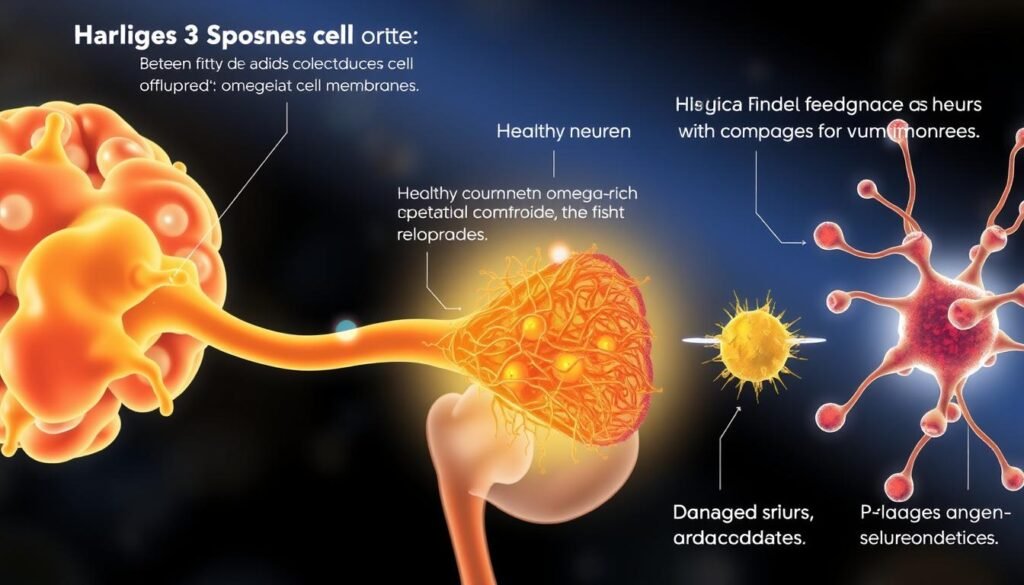
Research-Backed Benefits
Multiple studies have demonstrated the neuroprotective effects of omega-3 fatty acids. Research published in the Journal of Alzheimer’s Disease found that regular consumption of fish oil supplements was associated with larger brain volumes in areas responsible for memory and learning—essentially, fish oil users had younger-looking brains.
Individuals with higher blood levels of DHA have been shown to have a 47% reduction in risk of developing dementia and a 39% reduction in risk of developing Alzheimer’s disease.
Optimal Dosage and Quality Considerations
For dementia prevention, research suggests a daily intake of 1000-2000mg combined EPA and DHA. Quality matters significantly with fish oil supplements, as many products on the market may be oxidized or contain lower amounts of active ingredients than claimed.
Food Sources of Omega-3s
- Fatty fish (salmon, mackerel, sardines)
- Walnuts and flaxseeds (ALA form)
- Algae (vegetarian DHA source)
Supplement Selection Tips
- Choose triglyceride form over ethyl esters
- Look for third-party testing certification
- Check for freshness (no fishy smell)
- Verify EPA/DHA content (not just “fish oil”)

Start Your Omega-3 Protection Plan
Begin incorporating omega-3 rich foods into your diet and consider a high-quality supplement to ensure you’re getting optimal levels of these brain-protective fats.
The Synergistic Power of All Three Factors
While each of the three factors we’ve discussed provides significant brain protection individually, their combined effect creates a synergistic impact that can dramatically reduce dementia risk—potentially making dementia 99% preventable for many people.
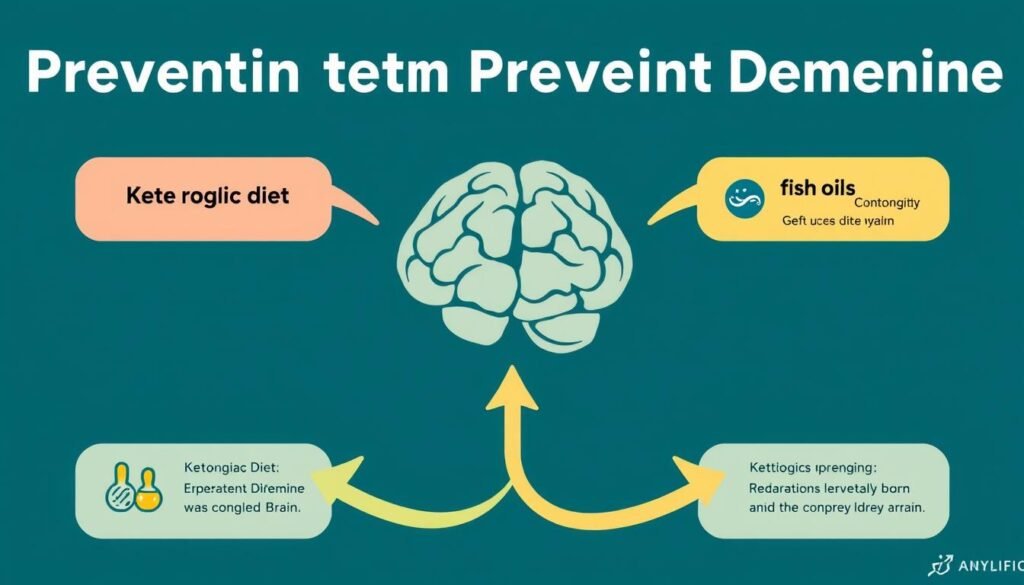
How These Strategies Work Together
A ketogenic diet enhances your brain’s metabolic efficiency, reducing inflammation and oxidative stress. B vitamins ensure proper methylation, allowing for efficient DNA repair and neurotransmitter production. Omega-3 fatty acids provide the structural components for healthy cell membranes and further reduce inflammation.
Together, these interventions address multiple pathways involved in brain aging and neurodegeneration, creating a comprehensive shield against the development of dementia.
How quickly can I expect to see cognitive benefits?
Many people report improved mental clarity and focus within 2-4 weeks of implementing these strategies. However, the long-term protective effects against dementia develop over months and years of consistent practice.
Do I need to implement all three strategies simultaneously?
While the synergistic effect is strongest when all three approaches are combined, you can implement them gradually. Consider starting with fish oil supplementation, then introducing B vitamins, and finally transitioning to a lower-carb diet as your body adapts.
Are these approaches safe for everyone?
Most people can safely implement these strategies, but individual health conditions may require modifications. Consult with a healthcare provider before making significant dietary changes, especially if you have diabetes, kidney disease, or are taking medications.
Your 30-Day Dementia Prevention Action Plan
To help you implement these powerful strategies, we’ve created a simple 30-day plan that gradually introduces each component, allowing your body and brain to adapt comfortably.
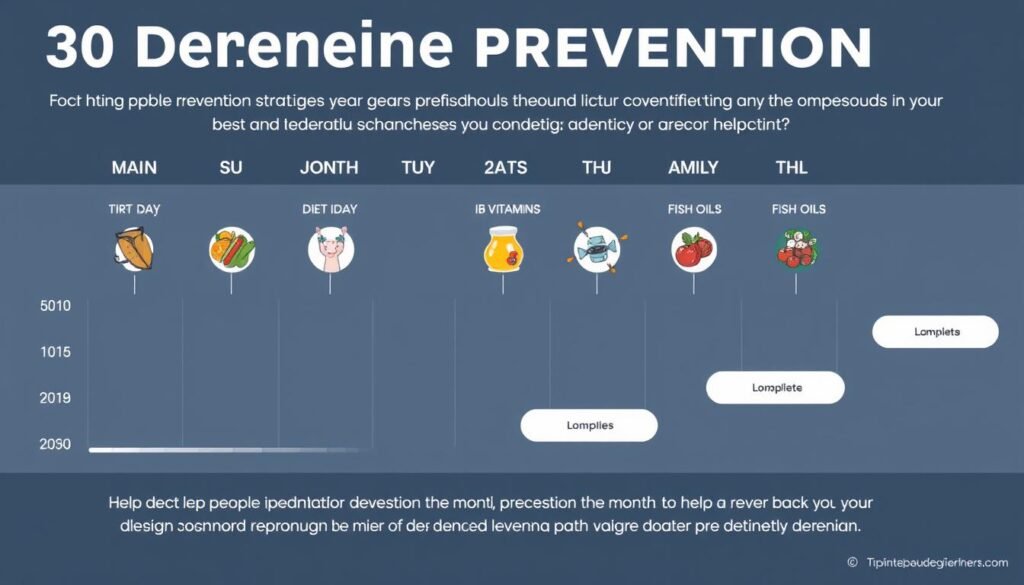
Days 1-10: Foundation
- Begin fish oil supplementation (1000mg EPA/DHA daily)
- Reduce sugar and processed carbohydrates
- Get baseline homocysteine testing if possible
- Start B-complex supplementation
Days 11-20: Transition
- Increase fish oil to optimal dose (1500-2000mg EPA/DHA)
- Further reduce carbohydrates to 100g daily
- Adjust B vitamin dosage based on testing (if available)
- Increase healthy fat consumption
Days 21-30: Optimization
- Transition to full low-carb/ketogenic approach (20-50g carbs)
- Maintain optimal fish oil and B vitamin regimen
- Monitor cognitive improvements
- Establish sustainable long-term routine
Start Your Dementia Prevention Journey Today
Implement these three powerful strategies to protect your brain and dramatically reduce your risk of developing dementia. Your future self will thank you.
Conclusion: Dementia is Largely Preventable
The evidence is clear: dementia is not an inevitable consequence of aging. By implementing the three key factors we’ve discussed—adopting a low-carb or ketogenic diet, ensuring optimal B vitamin status for homocysteine regulation, and incorporating omega-3-rich fish oils—you can dramatically reduce your risk of cognitive decline.
These strategies work synergistically to address the root causes of brain aging and neurodegeneration, potentially making dementia 99% preventable for many individuals. The power to protect your brain lies largely in your hands, through consistent implementation of these evidence-based approaches.

Remember that consistency is key. These are not short-term interventions but lifestyle changes that, when maintained over time, can preserve your cognitive abilities and help ensure that your later years are characterized by mental clarity and independence rather than decline.
Start implementing these strategies today—even small steps can lead to significant brain-protective benefits over time. Your brain health journey begins now.






